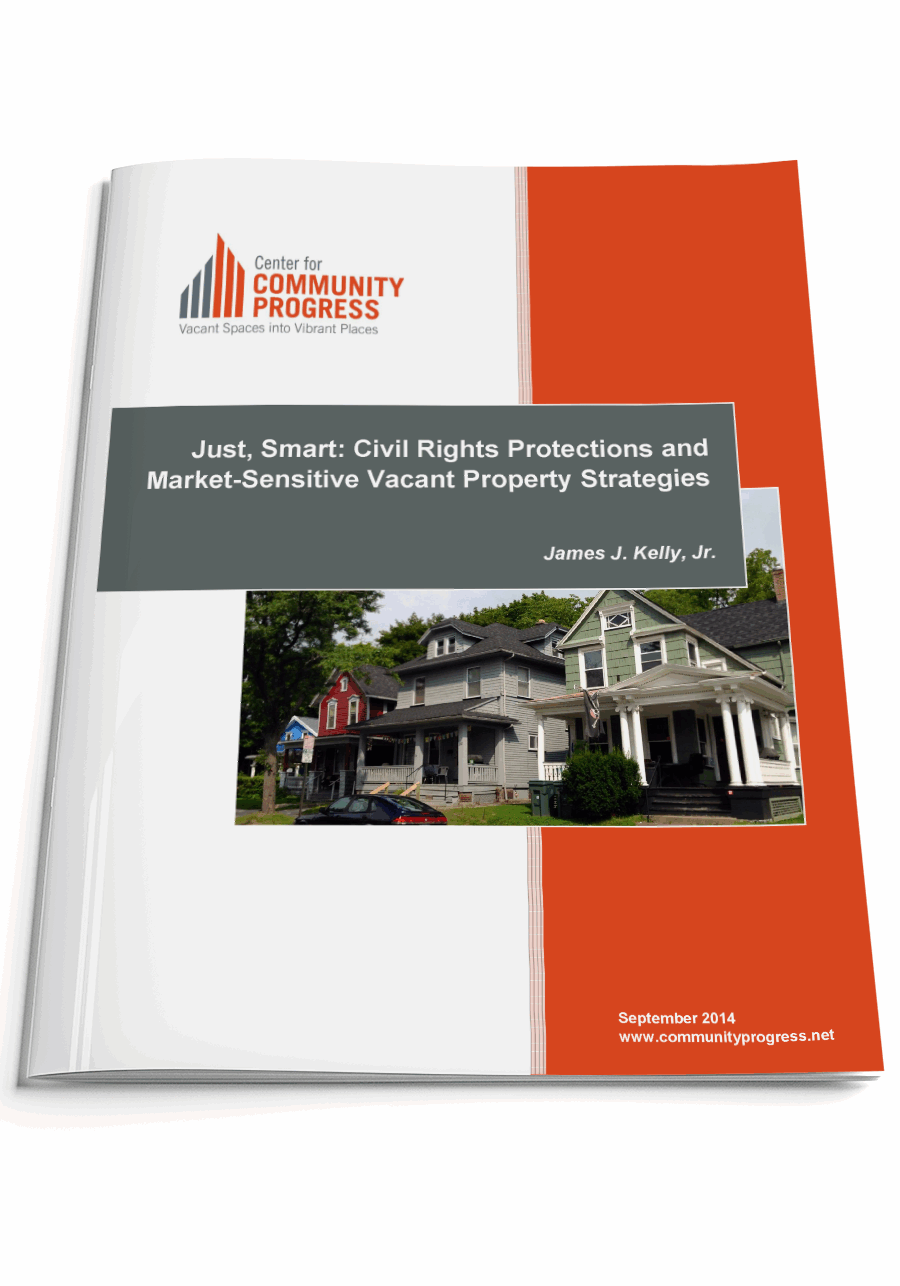Just, Smart
Civil Rights Protections and Market-Sensitive Vacant Property Strategies
Published: September 2014
Geography: United States
Author(s): James. J. Kelly
Using neighborhood real estate market data, public officials may respond to two nearly identical vacant houses in similar physical condition very differently. With the repeated application of a market-sensitive approach, neighborhoods that have just enough market strength to support rehabilitation with little or no public subsidy may receive code enforcement remedies that promptly, albeit incrementally, improve their stability. Poorer neighborhoods, on the other hand, may be relegated to long-term strategies that focus on reuse of vacant lots and large-scale redevelopment. Furthermore, citizen perception that an undercrowded neighborhood is being treated as a potential blank canvas for upscale development can be aggravated by land-bank disposition procedures that try to overcome weak neighborhood markets by requiring that vacant properties be sold in bundles. Thus, both code enforcement and land banking procedures that treat similar houses differently because of their location in different types of neighborhoods can be controversial, especially given the undeniable reality that more distressed neighborhoods have substantially higher percentages of residents of color.
Given the contentious nature of inner-city neighborhood development decisions and the stark history of discriminatory practices and outcomes in housing policy, it is crucial for those responsible for dealing with vacant property crises in their communities to be just as well as smart in planning and deploying market-sensitive vacant property strategies. Because civil rights law as applied to government actors addresses deliberate discrimination, unintended harm to minorities, and government’s affirmative obligations to
pursue racial justice, a thorough understanding of the relevant law is essential to forming a just and smart vacant property strategy.
This report explore primary areas of civil rights protections and reviews the civil rights vulnerabilities of code enforcement and land banking strategies that manage properties differently based on the neighborhood market context in which they are located.
Subscribe to join 14,000 community development leaders getting the latest resources from top experts on vacant property revitalization.

